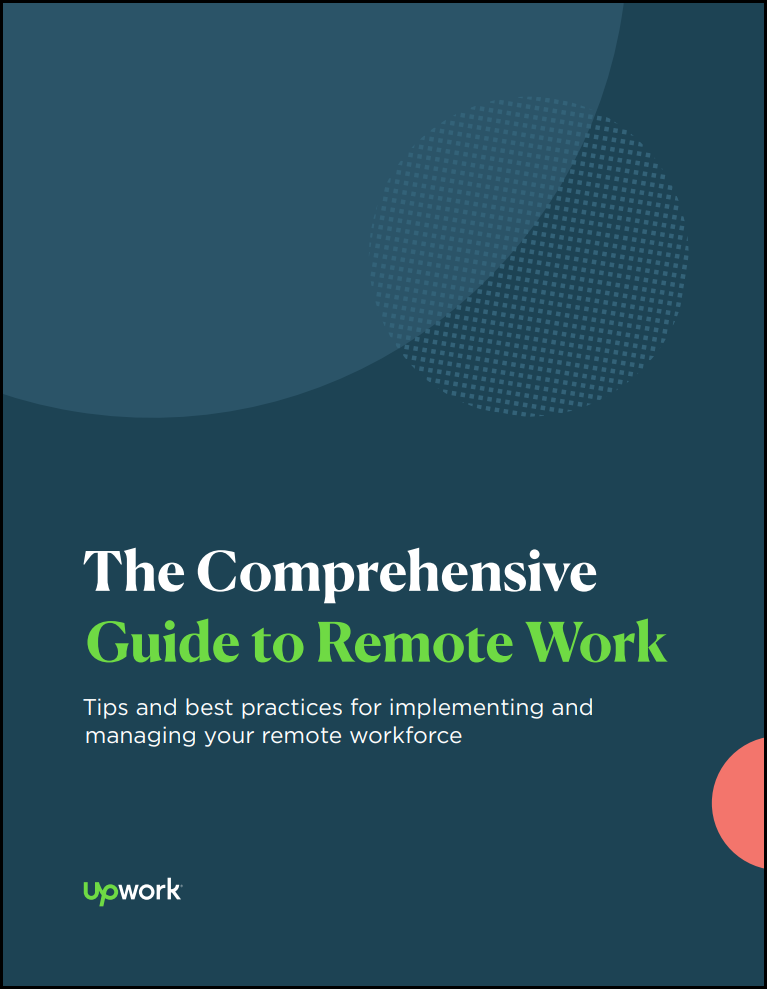The Evolving Landscape Of Online Writing: A Comprehensive Guide To Remote Writing Opportunities
The Evolving Landscape of Online Writing: A Comprehensive Guide to Remote Writing Opportunities
Related Articles: The Evolving Landscape of Online Writing: A Comprehensive Guide to Remote Writing Opportunities
Introduction
In this auspicious occasion, we are delighted to delve into the intriguing topic related to The Evolving Landscape of Online Writing: A Comprehensive Guide to Remote Writing Opportunities. Let’s weave interesting information and offer fresh perspectives to the readers.
Table of Content
The Evolving Landscape of Online Writing: A Comprehensive Guide to Remote Writing Opportunities
The digital age has transformed the way we work, and the writing profession has not been left behind. The rise of online platforms and the increasing demand for content across various mediums have created a wealth of opportunities for individuals to pursue writing careers from the comfort of their homes. This article delves into the intricacies of online writing jobs, exploring the diverse avenues available, the skills required, and the potential benefits it offers.
Understanding the Spectrum of Online Writing Jobs:
The world of online writing encompasses a wide range of specializations, each catering to different skills and interests. Here’s a breakdown of some prominent categories:
1. Content Writing:
This broad category encompasses creating various types of content for websites, blogs, articles, social media, and more. Content writers are tasked with crafting engaging, informative, and persuasive pieces that align with specific target audiences and marketing objectives.
- Blog Writing: Creating compelling blog posts on diverse topics, from personal experiences to industry insights.
- Article Writing: Writing informative and engaging articles for online publications, magazines, and websites.
- Website Copywriting: Writing persuasive and informative content for websites, focusing on product descriptions, landing pages, and calls to action.
- Social Media Content Writing: Crafting engaging content for social media platforms, including posts, captions, and stories.
- SEO Writing: Optimizing content for search engines, incorporating relevant keywords and strategies to enhance online visibility.
2. Copywriting:
Copywriting focuses on persuasive writing aimed at driving specific actions, such as making a purchase, signing up for a service, or donating to a cause. It involves crafting compelling sales pitches, advertisements, and marketing materials.
- Direct Response Copywriting: Writing persuasive copy that encourages immediate action, such as ordering a product or signing up for a service.
- Email Marketing Copywriting: Crafting compelling email campaigns that engage recipients and drive conversions.
- Landing Page Copywriting: Writing concise and persuasive content for landing pages, designed to capture leads and drive conversions.
- Sales Letter Writing: Writing persuasive sales letters that convince readers to make a purchase or take action.
3. Technical Writing:
Technical writing focuses on creating clear and concise documentation for complex technical products, services, and processes. It requires a strong understanding of technical concepts and the ability to communicate them effectively to a specific audience.
- User Manuals: Creating user-friendly manuals that guide users through product operation and troubleshooting.
- Software Documentation: Writing documentation for software applications, including tutorials, guides, and API documentation.
- White Papers: Creating in-depth technical reports that delve into specific topics and provide valuable insights.
- Technical Specifications: Writing detailed specifications for technical products and processes.
4. Creative Writing:
Creative writing encompasses fiction, poetry, screenplays, and other forms of imaginative writing. While opportunities for creative writers in the online space might not be as abundant as other categories, online platforms offer avenues for self-publication and reaching wider audiences.
- Fiction Writing: Writing novels, short stories, and other forms of fiction for online platforms and publishers.
- Poetry Writing: Publishing poems online through platforms dedicated to poetry and literary works.
- Screenwriting: Writing screenplays for film, television, and digital media, often utilizing online platforms for showcasing work and connecting with potential collaborators.
5. Academic Writing:
Academic writing involves creating research papers, dissertations, essays, and other scholarly materials. While primarily associated with academia, online platforms can provide opportunities for freelance academic writers to assist students and researchers with their writing needs.
- Essay Writing: Writing essays for students on various topics and academic disciplines.
- Research Paper Writing: Conducting research and writing comprehensive research papers for academic purposes.
- Dissertation Writing: Assisting students with writing dissertations and theses.
- Grant Proposal Writing: Writing grant proposals for research funding.
The Skills of a Successful Online Writer:
Beyond specific writing styles, several core skills are essential for success in online writing:
1. Strong Writing Skills: This is the foundation of any writing career. Mastering grammar, punctuation, and clarity is crucial. Furthermore, honing the ability to write in a concise, engaging, and persuasive manner is essential.
2. Research Skills: Online writing often requires in-depth research on various topics. Developing effective research techniques, including utilizing online databases, credible sources, and conducting interviews, is crucial.
3. Adaptability and Versatility: The online writing landscape is dynamic. Being able to adapt to different writing styles, tones, and formats based on client requirements is a valuable asset.
4. Time Management and Organization: Online writers often manage multiple projects simultaneously, requiring effective time management and organization skills to meet deadlines and maintain productivity.
5. Communication and Collaboration: Effective communication is vital for collaborating with clients, editors, and other stakeholders. Being able to clearly articulate ideas, respond to feedback, and work effectively in a virtual environment is crucial.
6. Digital Literacy: Online writers must be proficient in using various digital tools and platforms. This includes word processing software, online research databases, content management systems, and social media platforms.
7. Marketing and Self-Promotion: Building a strong online presence and marketing oneself effectively is crucial for attracting clients and securing writing opportunities. This might involve creating a professional portfolio, engaging in online communities, and actively seeking out freelance writing gigs.
Benefits of Pursuing Online Writing:
1. Flexibility and Work-Life Balance: Online writing offers unparalleled flexibility, allowing individuals to work from anywhere with an internet connection. This flexibility can be particularly beneficial for individuals with family commitments, health concerns, or a desire for a more balanced lifestyle.
2. Control Over Projects and Clients: Online writers have the freedom to choose the projects they work on and the clients they collaborate with. This allows for specialization in areas of interest and the opportunity to work with clients who align with personal values and goals.
3. Potential for High Earning Potential: While income can vary depending on experience, niche, and workload, online writing offers the potential for substantial earnings. Experienced writers can command high rates, particularly in specialized areas like technical writing or copywriting.
4. Continuous Learning and Growth: Online writing provides a constant learning experience. Writers are exposed to diverse topics, industries, and writing styles, continuously expanding their knowledge and skillset.
5. Building a Portfolio and Credibility: Online writing platforms and personal websites offer opportunities to showcase work, build a portfolio, and establish credibility in the writing industry.
FAQs about Online Writing Jobs:
1. How do I find online writing jobs?
There are various avenues for finding online writing jobs:
- Freelance Platforms: Platforms like Upwork, Fiverr, and Guru connect freelance writers with clients seeking various writing services.
- Job Boards: Websites like Indeed, LinkedIn, and ProBlogger post job listings for online writing positions.
- Content Mills: Websites like Textbroker and WriterAccess offer writing assignments for businesses and individuals.
- Direct Contact: Researching potential clients and reaching out directly with a compelling portfolio and cover letter can be effective.
- Networking: Engaging in online writing communities, attending virtual conferences, and connecting with other writers can lead to opportunities.
2. What qualifications are needed for online writing jobs?
While formal qualifications might not always be required, strong writing skills, research capabilities, and a solid understanding of the chosen writing niche are essential. Demonstrating experience through a portfolio or past writing samples is often a requirement.
3. How much can I earn as an online writer?
Earnings vary significantly depending on experience, niche, workload, and the payment model used (hourly rate, per-word rate, or project-based). New writers might earn less, while experienced writers in specialized niches can command higher rates.
4. How do I get paid for online writing jobs?
Payment methods vary based on the platform or client. Common methods include:
- Paypal: A widely used online payment platform.
- Bank Transfers: Direct transfers to bank accounts.
- Escrow Services: Third-party services that hold funds until work is completed.
- Check Payments: Traditional check payments, though less common.
5. What are the challenges of online writing?
Online writing presents its own set of challenges:
- Competition: The online writing market is competitive, requiring ongoing efforts to attract clients and secure assignments.
- Finding Reliable Clients: Not all clients are created equal. Ensuring clients are reputable and pay promptly is crucial.
- Self-Motivation and Discipline: Working from home requires self-motivation and discipline to maintain productivity and meet deadlines.
- Balancing Work and Personal Life: Setting clear boundaries and managing time effectively is essential for maintaining a healthy work-life balance.
Tips for Success in Online Writing:
1. Build a Strong Portfolio: Showcase your best writing samples, highlighting your skills and experience in specific niches.
2. Specialize in a Niche: Focus on a specific area of writing where you have expertise and passion. This allows you to stand out from the competition and attract clients seeking specialized skills.
3. Network with Other Writers: Join online writing communities, attend virtual conferences, and connect with other writers to learn from their experiences and build relationships.
4. Develop a Professional Website: Create a website or online portfolio to showcase your work, highlight your skills, and provide contact information.
5. Continuously Improve Your Skills: Take online courses, read industry publications, and stay updated on writing trends to enhance your skills and knowledge.
6. Set Competitive Rates: Research industry standards and set rates that reflect your experience and value.
7. Maintain Professionalism: Communicate clearly, meet deadlines, and deliver high-quality work to build a positive reputation.
Conclusion:
The online writing landscape is constantly evolving, presenting both challenges and opportunities for aspiring and seasoned writers alike. By understanding the diverse avenues available, developing essential skills, and embracing the benefits of remote work, individuals can carve out successful and fulfilling writing careers in the digital age. The key to success lies in honing writing skills, embracing adaptability, and strategically navigating the competitive landscape, ultimately transforming a passion for words into a sustainable and rewarding career path.







Closure
Thus, we hope this article has provided valuable insights into The Evolving Landscape of Online Writing: A Comprehensive Guide to Remote Writing Opportunities. We hope you find this article informative and beneficial. See you in our next article!
You may also like
Recent Posts
- Navigating The Digital Landscape: Online Job Opportunities For 17-Year-Olds
- Navigating The Amazon Ecosystem: Online Opportunities For Students
- Navigating The Digital Landscape: Online Jobs In Illinois
- Navigating The Realm Of Remote Work In Malta: A Comprehensive Guide
- The Rise Of Remote Work: A Comprehensive Look At Online Jobs In America
- Unlocking Opportunities: Online Tutoring As A Career Path For Women
- The Rise Of Remote Work: A Comprehensive Guide To Online Jobs From Home In The USA
- The Digital Frontier: Navigating Entry-Level Online Jobs Without Prior Experience


Leave a Reply